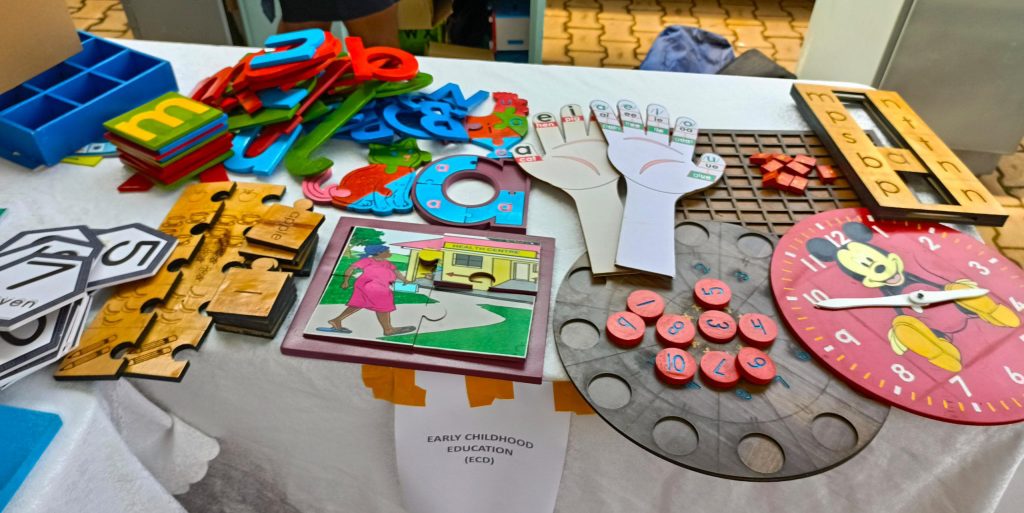
In recent years, there has been a growing need to bridge gaps in education by ensuring no child is left behind, irrespective of their background or learning ability.Inclusive education has emerged as the pathway to achieving this goal by fostering equity and access for all learners. River Flow International (RIFI) is at the forefront of driving these changes, utilizing innovative approaches to improve the quality of inclusive education through empowering science teachers.
Inclusive education aims to provide equitable learning opportunities for all learners, including those with diverse abilities, disabilities, and socio-economic backgrounds. It promotes that every learner belongs and thrives in a supportive environment, regardless of differences. Implementing inclusive education, however, requires teachers to be equipped with appropriate tools, skills, and mindsets.
Science Teachers as Agents of Change in Inclusive Education
Science Teachers as Agents of Change in Inclusive Education
Science teachers play a crucial role in fostering curiosity, problem-solving skills, and critical thinking in learners. However, ensuring that all learners actively participate in science lessons—particularly learners with special needs—requires deliberate and innovative efforts.
RIFI recognizes that science educators are instrumental in driving inclusivity. Through targeted interventions, RIFI empowers teachers to deliver science education in ways that cater to the varied learning needs of all learners, including those with disabilities or from underrepresented communities.
STIA’s Innovative Approaches to Inclusive Education
- Capacity Building through Customized Training Programs: RIFI organizes specialized teacher training programs to develop inclusive teaching skills. Science teachers are trained on how to use the science kits to create practical, engaging lessons that appeal to students with diverse abilities. These workshops also provide strategies for identifying and supporting learners who may struggle to engage in traditional classroom setups.
- Use of Adapted Science Kits for Active Learning : The introduction of science kits in classrooms provides an opportunity for students to learn through hands-on activities. RIFI ensures that teachers know how to modify these kits to meet the specific needs of learners with disabilities. For example, materials are adapted to aid students with visual impairments, enabling them to engage in practical experiments with their peers.
- Promoting Collaboration and Peer Learning : Inclusive education thrives on collaboration. RIFI promotes a culture of teamwork in the classroom, encouraging group projects that allow students of varying abilities to work together. This approach nurtures empathy, cooperation, and shared responsibility among learners, preparing them for real-world interactions.
- Digital Platforms for Continuous Learning Support : In response to the changing educational landscape, RIFI has embraced technology to provide additional learning support. Through online platforms, teachers access resources, share best practices, and engage in continuous professional development. These platforms also allow educators to connect with experts in inclusive education to refine their teaching methods.
- Monitoring and Evaluation for Continuous Improvement : To ensure sustained impact, RIFI uses robust monitoring and evaluation frameworks to track teachers’ progress in implementing inclusive strategies. Regular feedback from teachers and students helps identify challenges and guides improvements in future training programs.
Impact on Learners and the Broader Educational Ecosystem
RIFI’s initiatives are already making a difference. Schools that have adopted these innovative approaches report improved engagement, participation, and academic performance among students with diverse learning needs. Teachers feel more confident in delivering inclusive lessons, while learners develop essential skills such as teamwork, creativity, and problem-solving.
Moreover, by fostering inclusive learning environments, these efforts contribute to creating a generation of students who value diversity, equality, and mutual respect—traits essential for building a more inclusive society.
Inclusive education is not just a policy—it is a philosophy that embraces the potential of every learner. RIFI’s commitment to empowering science teachers with innovative teaching approaches is driving significant change in the quality of education across the region.
As more teachers integrate inclusive practices in their classrooms, the dream of a society where every learner has access to quality education becomes a reality. With continued support and collaboration, RIFI’s efforts will undoubtedly contribute to shaping a brighter, more inclusive future for all.
